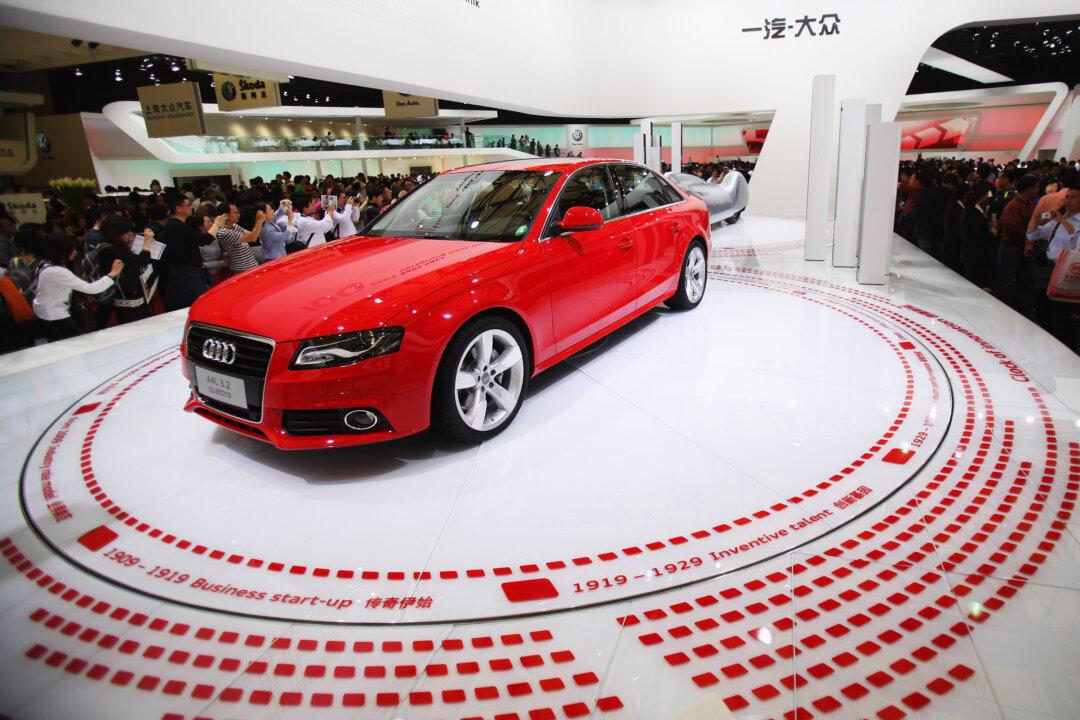Two Chinese citizens who claim they are victims as a result of toxic odors emitted from China-made Audi cars were detained by Shanghai police after they tried to stage a public protest.
In late March, a Chinese social-media post went viral, claiming that six people who owned Audi cars manufactured by FAW-Volkswagen developed leukemia shortly after using the car; two of the six people have died. The firm is a joint venture between the Chinese state-owned automaker FAW and the famed German carmaker. The company manufactures Audis at its plant in Changchun City in northeastern China.





